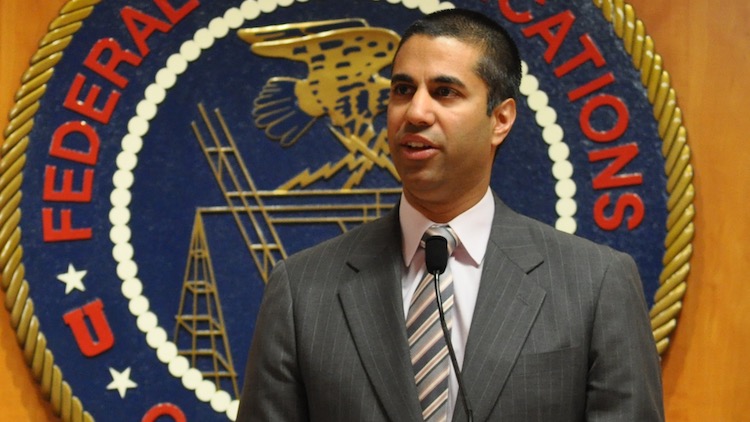Pai: Wired, Wireless Broadband Appear Very Competitive to Him

The smarter way to stay on top of broadcasting and cable industry. Sign up below
You are now subscribed
Your newsletter sign-up was successful
FCC chairman Ajit Pai gave definite signals Friday that the FCC may have a different answer the next time it weighs in on whether wireless broadband is a competitor to wired.
The FCC under his predecessor consistently said wireless broadband was a potential competitor but not yet one for the purposes of disciplining wired ISP prices.
At an American Enterprise Institute speech recapping his first 100 days, Pai was asked about that relative competitiveness by host and AEI visiting scholar Jeffrey Eisenach, who was a member of the Trump FCC transition team.
Eisenach asked whether Pai thought that wireless is now a substitute for wireline.
Pai said, for him, at least, "they are very competitive offerings." The "for him" is because the chairman is always careful to separate his views from what the FCC as a whole might conclude based on the fact record before it. But he suggested that fact record could be a strong one.
Pai said that as 4G LTE and 5G networks get rolled out and the next generation of WiFi is rolled out, "I think we are increasingly going to see that wireless is not this 'imperfect substitute' for wired connections. It is going to be the dominant means, the preferable means, by which people access the internet."
As a result, he said, "I think the FCC needs to take stock of that and make the appropriate policy decisions as a result.
The smarter way to stay on top of broadcasting and cable industry. Sign up below
Pai pointed out that, for the purposes of the Open Internet order, the FCC had no trouble lumping wireless in with wired—reclassifying both as Title II services. He cited the "well established case of goose vs. gander," calling for consistency of treatment and a "holistic view" of the marketplace.
Eisenach said he had marked the convergence when Microsoft started calling Windows 10 operating system programs apps.
Contributing editor John Eggerton has been an editor and/or writer on media regulation, legislation and policy for over four decades, including covering the FCC, FTC, Congress, the major media trade associations, and the federal courts. In addition to Multichannel News and Broadcasting + Cable, his work has appeared in Radio World, TV Technology, TV Fax, This Week in Consumer Electronics, Variety and the Encyclopedia Britannica.

